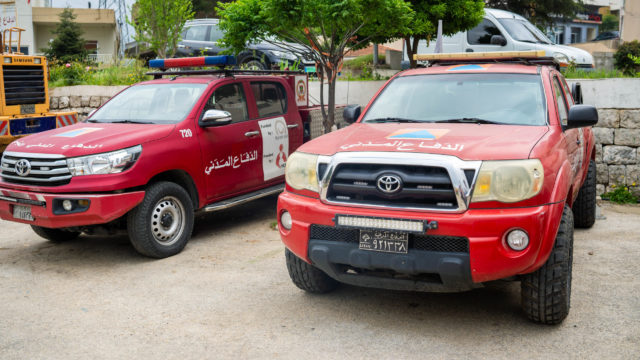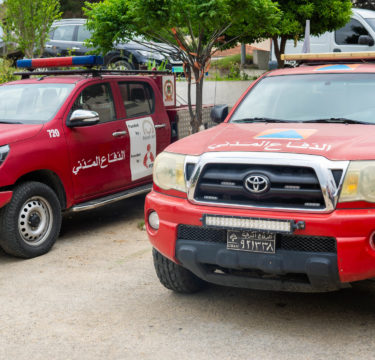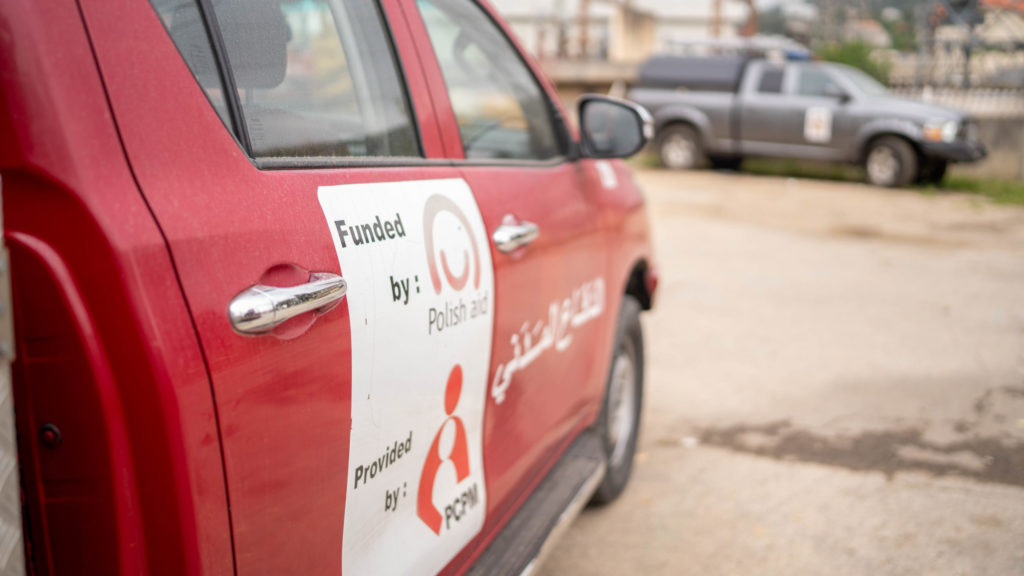Firefighters in Lebanon risk their lives without proper protective equipment


Firefighters in Lebanon risk their lives every day to save others—despite dramatic shortages of equipment, fuel, and funds. In these difficult conditions, they are supported by the Polish Center for International Aid Foundation (PCPM), which helps them get back on their feet—both literally and figuratively.
Dramatic everyday reality
The Lebanese Civil Defense is the most important firefighting service in the country, operating outside Beirut and Tripoli—the only cities with their own, better-equipped fire brigades. The rest of the country depends on the civil defense, which is funded from the state budget. Unfortunately, in Lebanon’s reality, still struggling with massive inflation and economic crisis, this simply means poverty.
– The civil defense budget in Lebanon is very, very, very small,” says a fire chief in Sed el Bouchrieh.
Greater Beirut is surrounded by numerous towns that resemble districts, often without any sign marking a different administrative unit. The city is very crowded, and there are few firefighters and vehicles. Even when they have a large fire truck, it is often useless because the streets are very narrow and inaccessible. However, the biggest problem is the personal equipment of firefighters.
Firefighters lack everything—from fuel to equipment to protective suits. Broken trucks can remain unusable for up to two years, waiting for funds to repair them: “If a truck is broken… it will stay broken for a year or two, until funds are found.”
Until recently, a large part of the civil defense firefighters were volunteers who received no pay. Only recently have the longest-serving been employed, but salaries are significantly insufficient. Due to inflation, especially public administration and service workers cannot live on such wages and must earn extra income.
Help from Poland
Facing these difficulties, PCPM implemented a renovation project for Civil Defense stations in the suburbs of Beirut. A key element was the installation of solar panels, which provided firefighters with energy independence.

– Just two years ago, Lebanon suffered huge power shortages. Often from the public grid, we could count on a maximum of 1-2 hours of electricity per day, and the rest had to be provided by a generator. On the other hand, even if there was power, we didn’t have enough funds to cover the bills,” says the fire chief in Sed el Bouchrieh.
Thanks to energy savings from solar panels, they can invest in equipment. “It’s not much, but at least we can buy spare parts for vehicles or some personal gear.”
Besides solar panels, the roof was sealed, and social rooms were equipped and renovated.
Frightening conditions
Firefighters from Sed el Bouchrieh specialize in extinguishing industrial fires but lack proper suits. The main problems are lack of protective gear and water access. This part of the city is very narrow, and only small trucks with 1500-liter tanks can reach fires. This is insufficient, especially in densely built Beirut districts without hydrant networks.
Even with small vehicles, water supply is a challenge: “There is a huge problem, especially in these dense and very narrow streets. If you have such a small truck, you always need a second one to deliver water.”
Help that truly saves
Thanks to PCPM and funding from the Polish Aid program, the civil defense unit has become more functional and safer. However, this is just a drop in the ocean, as needs are enormous. “The most urgent things are tools and protective equipment, which we don’t have,” says a team member.
The firefighting suits they use lost their protective qualities many years ago. Unfortunately, they won’t get new ones because they are too expensive. Therefore, every fire intervention carries much greater risk than in a similar situation in Poland.
Hope in difficult times
Lebanese firefighters are a symbol of perseverance and dedication.
“Last year, I responded to over 700 interventions. I extinguished forest fires, houses, garbage bins, cars, helped in buildings damaged by bombings, and at road accidents. I had the chance to participate in almost every possible intervention that can occur in a firefighter’s career,” says the chief of the unit in Koubayat.
Their work saves lives, although they often risk their own without proper protection. Thanks to support from Poland and other countries, they gain not only equipment but also hope that someone remembers them.